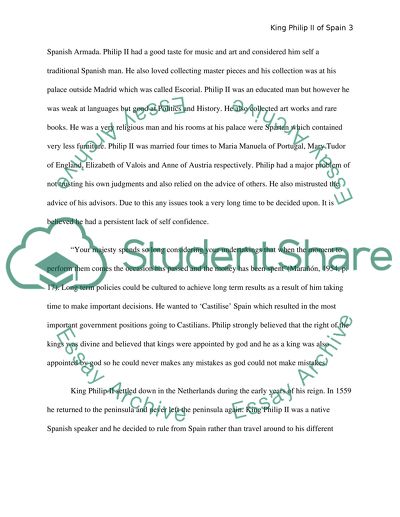Cite this document
(“King Philip II of Spain Essay Example | Topics and Well Written Essays - 1500 words”, n.d.)
King Philip II of Spain Essay Example | Topics and Well Written Essays - 1500 words. Retrieved from https://studentshare.org/history/1507366-king-philip-ii-of-spain
King Philip II of Spain Essay Example | Topics and Well Written Essays - 1500 words. Retrieved from https://studentshare.org/history/1507366-king-philip-ii-of-spain
(King Philip II of Spain Essay Example | Topics and Well Written Essays - 1500 Words)
King Philip II of Spain Essay Example | Topics and Well Written Essays - 1500 Words. https://studentshare.org/history/1507366-king-philip-ii-of-spain.
King Philip II of Spain Essay Example | Topics and Well Written Essays - 1500 Words. https://studentshare.org/history/1507366-king-philip-ii-of-spain.
“King Philip II of Spain Essay Example | Topics and Well Written Essays - 1500 Words”, n.d. https://studentshare.org/history/1507366-king-philip-ii-of-spain.


